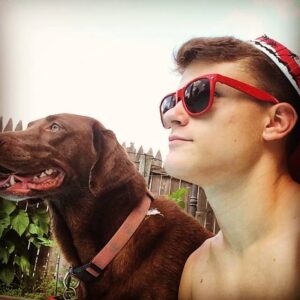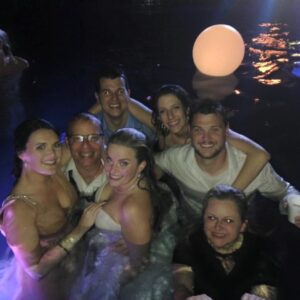He was old and broken, but unbowed in his wheel chair. The lady who brought him in could have been his daughter, but she wasn’t. She was very pretty. For several weeks I watched her wheel him in for lunch each Wednesday at the White Horse Tavern. That’s the bar in the Village, NYC where Dylan Thomas died.
The old man had long white hair that hung to his shoulders, and he sat erect in his wheelchair; a proud man. He had lost the use of his right arm and leg, to a stroke I supposed. I had to look closely, but I saw that he had a glass eye. I wondered who he was because clearly, he was somebody. For weeks I sat on my perch in Dylan Thomas’s spot, and watched them converse over lunch. Eventually I moved to the table beside the one they always sat at because I wanted to meet this man and this woman. There was something interesting here. I just knew it. Finally, one Wednesday we spoke.
She was from a publishing family in Jackson, Mississippi, and her father-in-law, the Colonel, was a retired Marine Corps pilot. Every Wednesday she picked him up at his apartment, and they would enjoy lunch and cocktails at the White Horse. He enjoyed getting out, rain or shine. I looked kindly at the old man, and I asked him what kind of plane he flew.
He turned a little in his chair to face me more directly, as if he were sizing me up. Then, he looked straight into my eyes. Even old and crippled, and stuck in a wheelchair, he was an impressive man, and I realized that he was still a Marine. He flew Corsairs in the South Pacific, he said in a strong voice that pierced the low lunch crowd murmur as easily as machine gun bullets cut through a cloud. The sheer strength and resonance of his voice caught the attention of the guys sitting at the table next to me.
“Do you know where Guadalcanal is?”, the old Marine asked me. The ears of the guys sitting at the bar behind him perked up at the mention of Guadalcanal. They turned so they could see the old man as they began to listen surreptitiously. He spoke like it was yesterday, flying force protection for the P-38 Lightenings that shot down General Yamamoto’s transport plane. He used words that painted a picture of the blue sky and the damp green jungle covering the island floating on the turquoise sea below. He gestured a little with his left hand as if a plane. If you closed your eyes you could see the fight unfold. P-38s, forked tail devils painted that drab Army green, doggedly pursued a dipping and dodging, blue and white transport plane, ripping it apart with machine gun fire while the Colonel and his fellow Marines, in their beautiful blue Corsairs, engaged the Japanese fighters that had been tasked with protecting the General. With a trace of sadness in his voice that only a pilot can produce, he described the transport plane, smoking, spiraling down and exploding on the jungle canopy below.
The story continued, and one by one the patrons at the bar surrendered to the strong voice from the old man in the wheelchair. He stayed in the Corp after the war, and eventually went to Korea. The lunch crowd grew a quiet as patrons at the nearly every table paused their conversations, leaned back so they could see the old man and hear his story. With the whole tavern his prisoner and in the quiet clear voice of a proud Marine, he told the the story of the destruction of the bridges at ToKoRi. “The movie”, he said, “used Jets, but we used Corsairs. Jets went too fast and couldn’t get low enough in the canyon. We got our asses shot up, but we got the damn bridges.”
I looked at the woman with him. She smiled a smile that told me we were hearing from the young Marine trapped in the old man’s broken body. Following Korea, he transitioned into Jets. Over North Vietnam, his jet was shot to pieces, his canopy shot away. He smiled at me, and pulled his long white hair back revealing a mangled ear and massive scars on his head and neck. With his good eye he winked and said “..I caught a little bit of the flak over Haiphong.”
“Oh my God!”, I said spontaneously said, “You bailed out over North VietNam?”
He glared at me as if I had uttered blasphemy. His one good eye fixed on me as if a gun-sight, and I froze. I just knew he was going to rise up out of that chair and pound me to pulp. He paused and surveyed the lunch crowd standing silenced, transfixed. For the first time, he realized that the room was his, that everyone had been captured by his tale. The icy gaze of his pale blue eye, burning with the strength, courage, and discipline of a proud US Marine, returned to me. In voice that echoed in the silent bar, the Colonel said “My Government sent me out with their God Damned airplane and I brought their God Damned airplane back.”
Blind in one eye, and with a mostly useless right arm, he landed his crippled jet on the deck of a pitching carrier in a rainstorm at night on the Gulf of Tonkin.
The room was silent for a few, long seconds, then one man stood and clapped. Another man stood, came to attention, and saluted. One by one, the whole New York City lunch crowd stood and applauded the old man in the wheelchair. The old man looked a little surprised by the response. The Colonel returned the salutes, and went back to his lunch.
A few minutes later, his Daughter-in-Law asked for the check.
‘Lady, that tab has already been paid’, the bartender replied.
I love New York.




Leave a Reply